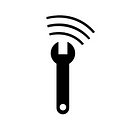Starting with the Solution
Colleen Pulawski (she/her) is a 2020 Summer Fellow with the Mayor’s Office of New Urban Mechanics devising a mode of resident engagement with indoor environmental sensor data that is personal, tactile, and actionable.
“The Lunchbox of Sensors is a take-home kit of indoor environmental quality sensors to help residents learn about the indoor spaces where they spend time.”
I’ve uttered this statement (slogan?) dozens of times during my tenure as MONUM Summer Fellow. The “Lunchbox of Sensors” (LoS) is conceived as a tool for engagement around indoor environmental quality and public data, and I was tasked with exploring and developing the idea.
I stepped into my role to find abundant enthusiasm for the LoS as product. But what I found as I repeated the above mantra in early meetings was a lack of clarity on the need behind the LoS. Why was I doing this work? Indoor environmental quality issues are real and pervasive throughout Boston. They play out with egregious inequity across lines of race, ethnicity, and income. But as the LoS idea was handed over to me, I felt unclear about its specific role in addressing these problems.
Starting with a solution is not my usual process — either as an artist or a policy analyst. On my fridge lives the Samuel Beckett quote, “To find a form that accommodates the mess, that is the task of the artist now.” In my work, forms (solutions) tend to emerge from messes (needs or problems) rather than dictating them. Here, I was given the form. But where was the mess? What specific problem were we solving for, beyond the broad landscape of issues and inequities in indoor environmental quality? Who experiences this problem? How did we arrive at this configuration in response? In a sense, I was asking: “Can I problematize this solution?” Could I force open, rather than assume as foreclosed, a problem space within the LoS to shape its future according to concrete, rather than abstract, need? To pursue this, I employed a two-fold approach:
1) Craft a speculative artifact. Flesh out a digital prototype of the LoS to the highest fidelity I could muster up.
2) Employ this artifact as provocation to unearth real problems and needs through dialogues with actual and potential stakeholders.
I digitally embodied the LoS with sensors, drafts of educational materials and interactive logbooks, imagery, budget, and prototypes. Then, I hit the ground running with it and set forth on a mission to listen. I heard from Boston Public Schools, Boston Public Library, CBOs in Chinatown and Roxbury and Allston-Brighton, Boston Housing Authority, Boston Public Health Commission, Lawyers for Civil Rights… the list goes on. What was revealed were a host of visions about what the LoS could be and the problems it might help solve. Here’s a small sampling of what I heard:
“Kids are emailing us saying they want to learn more about climate change and the environment.”
“I’m a big data person. I would love this data as a new asset for advocacy.”
“I see this as something that expands into Boston Public Schools (BPS) and becomes a part of a curriculum that explores health and housing.”
“What if City Life got one of these and residents used it to advocate for their housing rights?”
“Our previous air quality work has been very ‘science-y’. This gives our residents a story they can tell.”
This process unearthed a trove of needs: for data, stories, curriculum, and more. Can the LoS address them all? Maybe not. But what was generated, and what will push this work forward as we move to pilot the program, is a set of hypotheses about the specific messes that the form of the LoS might be able to accommodate.
Training and experience taught me that explorations of problem spaces should precede that of solution spaces. Working with the LoS demonstrated that this process need not always be linear. Employing a speculative artifact as provocation can elicit meaningful visions of the what and who you’re solving for.
Will this experience shift my future work toward more solution-oriented processes? It’s unlikely. But working on the LoS generated some takeaways that I’ll keep with me: Prescriptions may not be as prescribed as they seem. If you want, solutions can be problems, too. And sometimes, the form can help you find the mess.
Colleen is an artist-turned-policy-student working at the nexus of design, data, and local governance. After studying acting at Carnegie Mellon University, Colleen moved to LA to Make It in Hollywood(tm). Instead, she was accidentally radicalized by her day job as a private chef and started a cooking cooperative called Post-Capitalist Kitchen. Colleen went on to co-found Free Machine, a nonprofit collective that designs creative programs and policy frameworks to guide the equitable development of public-interest technologies.
Colleen is presently an MPP candidate at UC Berkeley’s Goldman School of Public Policy, where both her applied work and research focus on reimagining civic engagement and public space, and how cities use data to inform local government innovation. If you can't find her, Colleen is probably off brewing a fermentation project or on a backpacking trip.
About the Fellowship:
The New Urban Mechanics Summer Fellowship is designed for entrepreneurial students and professionals interested in working in public service. During this highly selective eight-week program, summer fellows work as a team and on their own projects, generating and implementing creative and thoughtful new prototypes to benefit the City of Boston.
